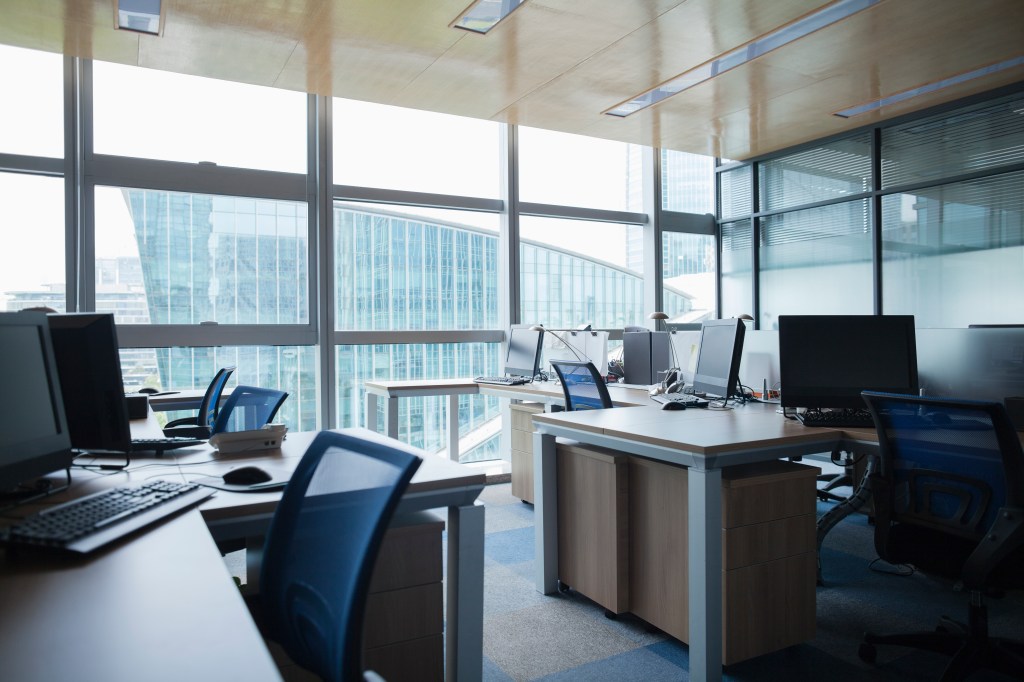As fallout intensifies following CommBank’s ruling that staff must be in the office 50% of the time, new data is emerging that increasingly supports a flexible working model.

Key Takeaways
- New data from Thrive at Monash Business School and Culture Amp has shown that employee well-being is negatively impacted by mandatory office days.
- Employees working in a hybrid model report feeling the highest levels of support and purpose.
- This comes as companies like CommBank and Westpac face public backlash after encouraging employees to return to offices
Amidst outcry against CommBank mandates that employees must spend 50% of their time in the office, a new study suggests flexible working is the key to employee wellbeing.
CommBank boss Matt Comyn’s new ruling was met with a range of responses. Many workers strongly objecting to having their flexibility reduced. The Finance Sector Union (FSU) hit back saying employees have expressed they believe working from home increases their productivity and engagement.
Recent data would agree with them.
A three-year-long study conducted by Culture Amp and Thrive at Monash Business School broke down wellbeing data from HR professionals into five categories: Purpose, support, self, balance, and equipped.
Employees required to work in an office scored lower across all wellbeing metrics.
“While there’s immense value in face-to-face interactions and collaboration, we need to acknowledge that the world has fundamentally changed, and so have our work patterns,” Culture Amp’s Chief People Officer Justin Angsuwat said.
At least 60% of respondents who worked in a hybrid model reported feeling supported, as opposed to only 52% of those forced to work in the office. 65% of hybrid respondents felt a sense of purpose in their jobs, whilst only 56% of those forced back into offices felt the same.
Where Australia stands

Coming out of the pandemic, Australia’s HR teams seem to have fared better than others.
Aussie teams reported productivity levels 8% higher than the international average.
HR leaders in Australia are also reporting an ability to bounce back during periods of change that averages 8% higher than global teams, and 10% higher than teams in the United States.
The resilience demonstrated by this data was vital early in the Covid-19 pandemic when employers had to quickly move physical workspaces onto entirely remote, digital platforms.
However, it is the post-pandemic era that seems to be testing the flexibility of Australian employers, with several high-profile examples thrusting the issue into heated public debate.
The debate over WFH
While CommBank has come under fire for its stricter approach, the FSU saw a recent victory with NAB, reaching an agreement that protected a hybrid work model, weighting requests for flexible arrangements towards approval.
Leaked emails revealed that Westpac Group CEO Peter King expects employees to be in the office “two or three days a week”.
“As we work out what’s next in the future of work, organisations will have to adapt and find the right balance between remote and in-person work.”
Culture Amp’s Chief People Officer Justin Angsuwa
And the WFH war only intensified when last week former Victorian premier Jeff Kennett proposed a pay cut for employees who choose not to return to the office – claiming that they would save money on travel.
“As we work out what’s next in the future of work, organisations will have to adapt and find the right balance between remote and in-person work,” Angsuwat said in a statement.
“This is hard. Business, role, and individual needs are sometimes in tension, and even then, individual needs vary widely.”
But Angsuwat reiterated what Culture Amp’s data suggested – that hybrid working “gives people a chance to find a work-life harmony that works better for them, which ultimately leads to happier and more motivated employees.”
Why workers are unhappy
A combination of financial stress and record-low unemployment is also putting employees who are unhappy with their working arrangements in a powerful bargaining position, according to a Gartner HR study.
The data showed that only 45% of respondents reported feeling supported in the context of the current economic climate.
The data also supports what many have been hearing anecdotally for a long time – employees are overworked.

Over two-thirds of people report feeling unable to manage the requirements of their role.
In this context, flexible arrangements are increasingly important for employee retention, and according to FSU National Secretary Julia Angrisano, “Some workers are so unhappy about the CBA’s edict that they are considering whether to resign and seek other more flexible working arrangements.”
Professor Alex Christou, the Director of Thrive Asia Pacific said in a statement that “employers must recognise the significance of employee wellbeing and prioritise flexible work arrangements that promote work-life integration. We now know the value of empathy, communication, and collaboration as essential pillars of successful remote teams.”
Angsuwat stated, “We hope that this data and the conversations that will follow will help organisations be intentional about finding the right balance to unlock the full potential of their people.
“We have the incredible opportunity to rethink how work is done.”


